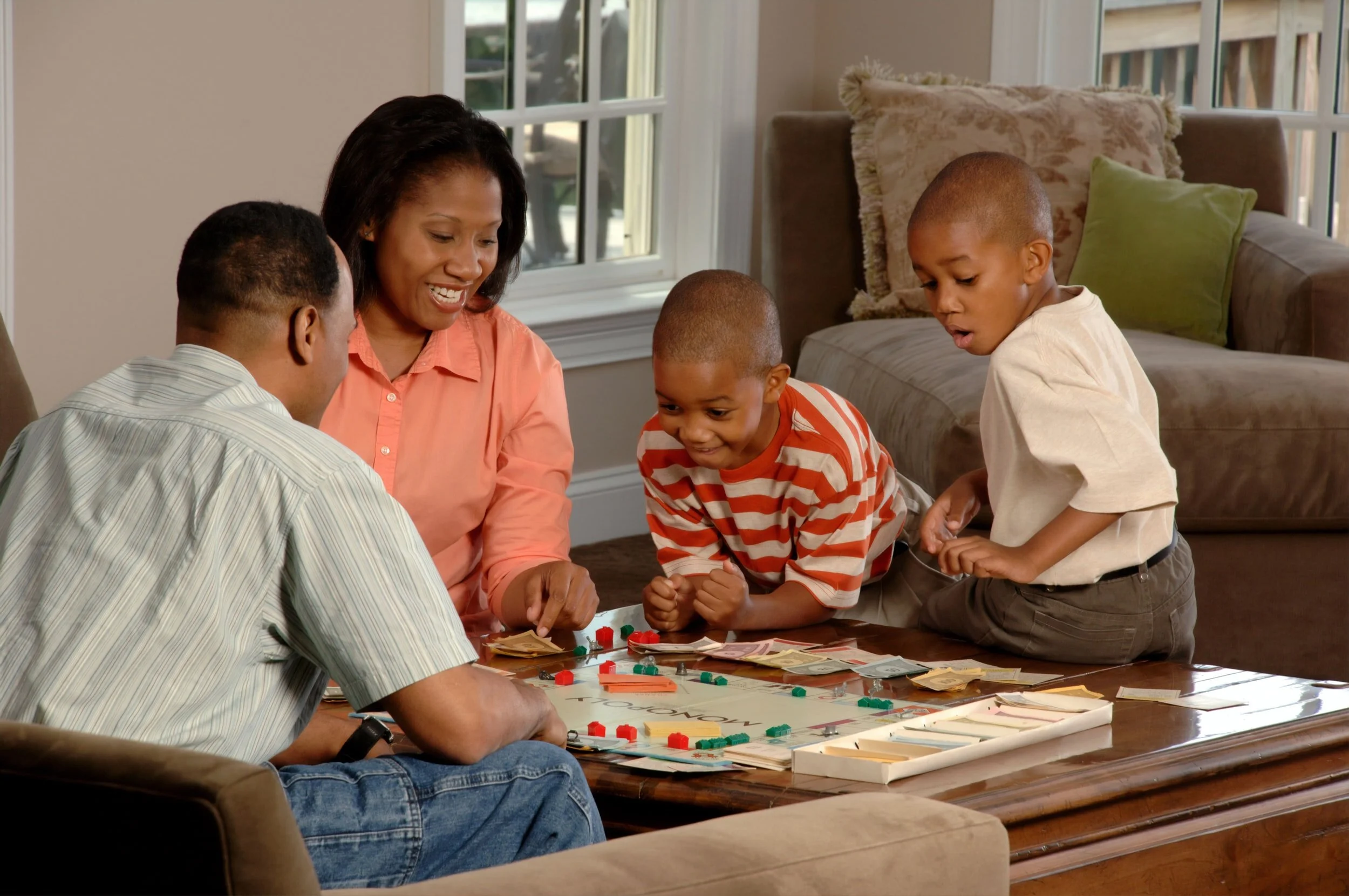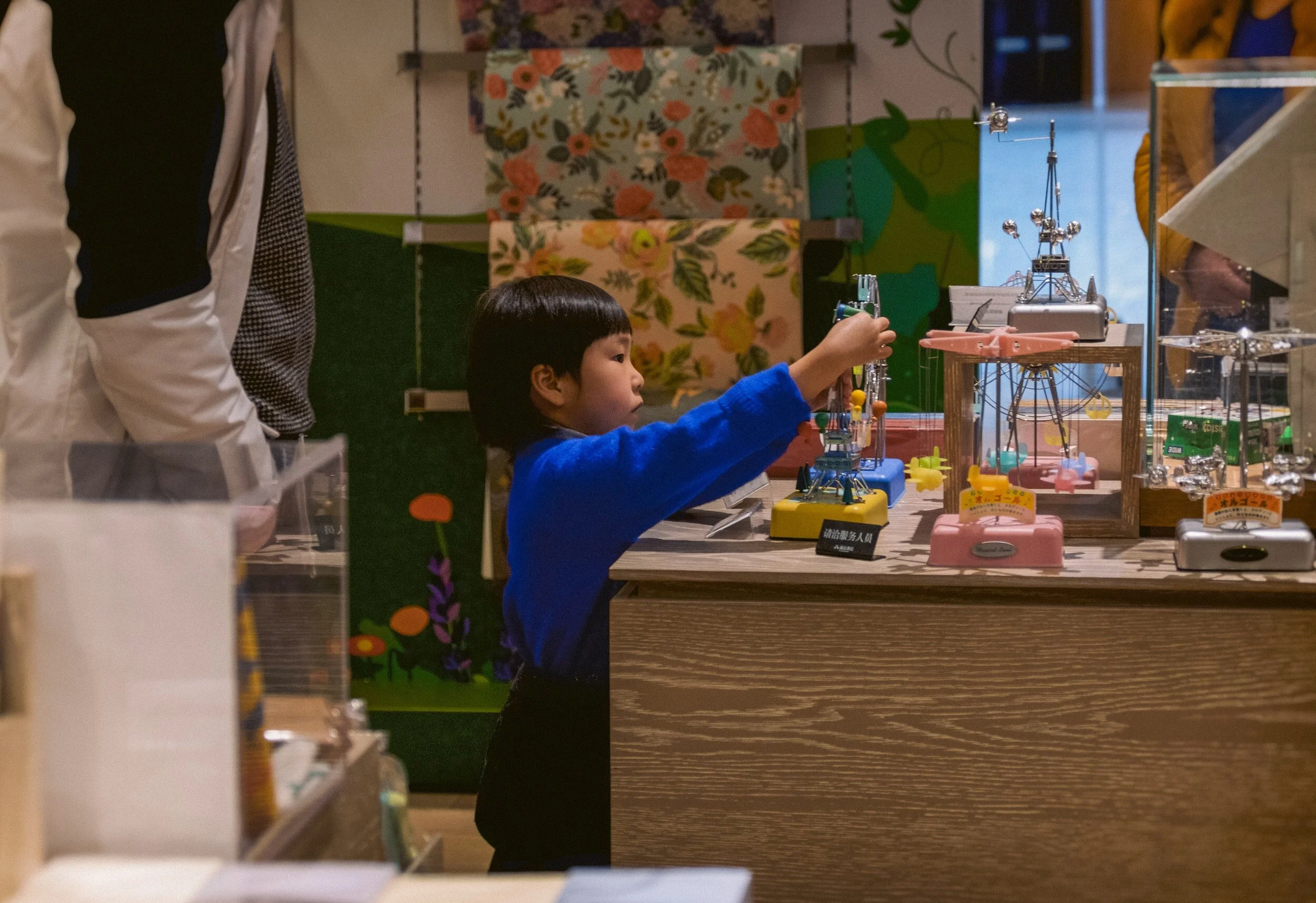“Mom! Dad! Play with me!” If you are the parent of a young child, you’re familiar with this plea. Kids crave individual playtime with a parent more than pretty much anything else on the planet. We all know that “quality time” is important for families. And, if you’ve ever visited a children’s counselor, you’ve probably heard all about the importance of parent-child playtime from them, too. What exactly makes this play so special? When you play together with your child, you’re teaching them important lessons about themselves and the world.
Children Learn Through Play
Have you ever watched your child repeat an activity over and over again? Maybe your preschooler watched the same movie every day, or loved to repeat the same game for what seemed like forever. Kids repeat things in their play because they are using play to figure out something new. Play is one of the main ways the children learn. Even when it looks like they’re just goofing off and having fun, they’re also doing serious work that helps them grow and develop.
Social skills, fine and gross motor skills, and creative problem-solving are all learned or practiced through play. You are nurturing life skills when you play with your child, but you’re also nurturing your relationship. Play can help you and your child to bond. It can also teach your child important lessons about herself, and how you see her.
Play Lesson #1: “I Am Important”
Some parents are surprised to learn that setting aside time for individual play is so helpful to kids. After all, many children are with at least one parent all day long! Sometimes, it can even feel like there’s a little too much togetherness when everyone is cooped up at home.
Even if you and your child are together a lot, much of that time is spent multitasking. We have all “uh-huh-ed” our way through a conversation with a child while replying to a text, or half-watched a movie while trying to finish some work. That’s life! Nobody is perfect.
During playtime, however, all of your focus is on your child. You are totally present. Ideally, this means no phones or screens. When you do this, you are letting your child know that they matter to you. Their interests and feelings are important, and worthy of your undivided attention. This kind of attention strengthens your child’s self-esteem. It may also make it easier to handle not being the center of attention at other times of day.
Play Lesson #2: “My Parents Listen to Me”
As a play therapist, I help parents learn how to play with their kids as part of my work. Sometimes parents tell me they aren’t sure what to say while playing. How do you respond when your child is telling you about an elaborate Star Wars Lego adventure or dollhouse family saga?
When in doubt, you can always reflect what your child says back to them. When you paraphrase or repeat back what your child just said, it shows you are listening. Kids love to feel heard, and they don’t always feel like grown-ups pay attention to what they say. It is empowering to know that what you say is important enough to be listened to, even if the topic is Star Wars Legos.
Children learn social skills through play. When you listen to your child, you are teaching them to be a good listener by example. Over time, it can help them to be a better listener when you’re speaking, too.
Play Lesson #3: “This is What Good Behavior Feels Like”
Kids are usually on their best behavior when playing. And why wouldn’t they be? It’s fun, it helps burn off energy, and it gives children a chance to feel like they’re in charge for a little while. Whining, tantrums, and other forms of negative attention-seeking often seem to melt away. This is especially true when a parent is following the child’s lead during play.
Children are more likely to repeat behaviors that we pay attention to. All too often, good behavior gets ignored due to the business of everyday life. We might only stop to reprimand a child for negative behavior, and take advantage of quiet “good behavior” times to get other work done. This can mistakenly lead a child to believe that the only way to get our attention is by acting out.
Playing with your child gives you the chance to point out good behavior and reward it with a heaping helping of positive attention. Your smiles, praise, and focus lets your child know that you like what they are doing. That feels great! Kids can then mentally “flag” that behavior as something that got a positive reaction from you. This means they’ll be more likely to show that good behavior again in the future.
Play Lesson #4: “I Can Be Mindful”
Another trick I teach parents in my office is to verbally track what their child is doing during play. This is something that play therapists do all the time. “Tracking” means simply describing the actions you see your child doing. If you imagine a sports commentator talking about a game, it’s a similar idea.
Children are still learning to be self-aware. A lot of the time, they’re acting on their impulses and are not really conscious of what they’re doing, or why they are doing it. This can make it hard to be “well behaved”—after all, how can you change your behavior if you’re not aware that it’s happening?
Describing your child’s play increases their self-awareness, and helps them to be more mindful of their actions. We know that mindfulness is an important skill for helping children (and adults) to manage strong feelings without becoming overwhelmed. Being more mindful during play also helps active or distractible children to focus on an activity. You may notice your child sticks with an activity longer if you are narrating while they play.
Play Lesson #5: “I Am Loved”
The activity you choose for playtime doesn’t really matter. The warmth exchanged between you and your child is what’s most important. A lot of nonverbal communication happens during play: smiles, laughter, hugs, or pats on the back are common. Play makes it easy to feel and show affection, which brings up warm, fuzzy feelings for kids and parents alike.
Playing together strengthens your parent-child bond. It helps children to feel safe in their knowledge that you love them unconditionally. Feeling loved increases a child’s emotional resilience. It can make it easier for them to cope during periods of stress.
All this bonding has a benefit for parents, too. If your child has been challenging you with difficult behavior, it might be hard to summon up those warm, fuzzy feelings all the time. During stressful times, positive experiences with a child can feel few and far between. Setting aside time to play makes sure that those positive experiences keep happening even during hard times. Playtime can help you feel closer to your child, and make parenting feel more rewarding.
Are You Considering Play Therapy in North Carolina?
Individual playtime with a parent can work wonders for children. It can improve relationships, increase resilience during times of stress, and even improve tough behaviors. Sometimes, though, children need more help. A specially trained play therapist can work with you and your child to help you get through stressful times more easily.
Play therapy is a great fit for younger kids, because they still do most of their learning through actions rather than words. It can help kids with anxiety, trauma, and general life stress. If you’re looking for a play therapist and you live in North Carolina, New York, or Florida, I may be able to help. My play therapy office is located in the Charlotte area, and I also provide online counseling to kids in all three of these states.
You are always welcome to call or email me to learn more about how play therapy can help your child. If you’d like to go ahead and request an appointment, you can do that too!




